Refugee family that fled Afghanistan with Canada's approval is now stuck abroad in web of bureaucracy
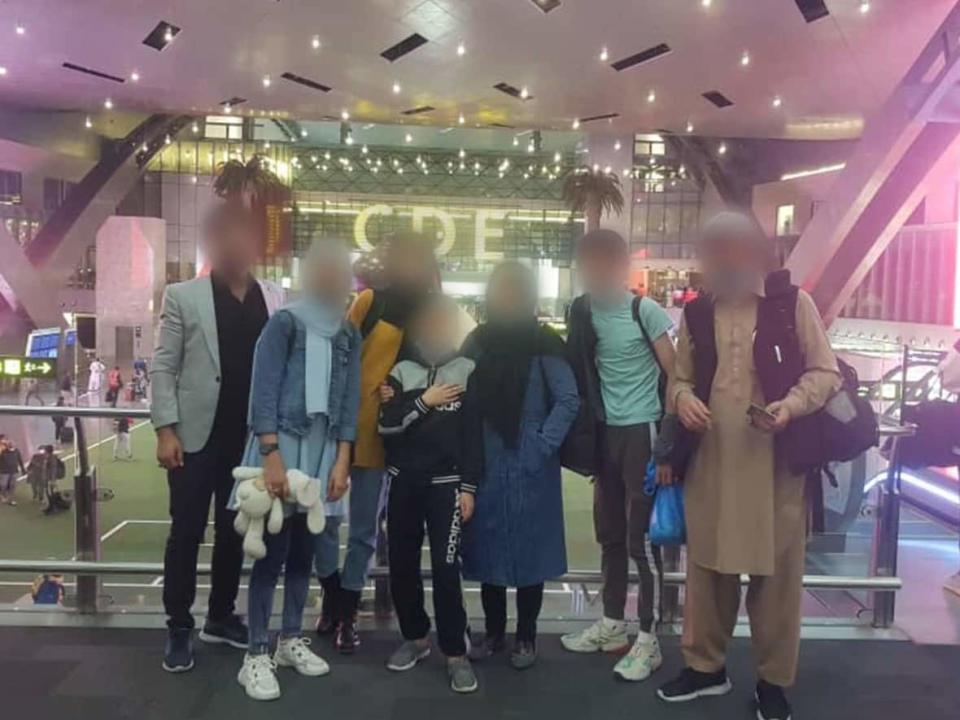
Every day is now painfully similar for an Afghan mother of four as her family waits anxiously in an unfamiliar country for answers from the Canadian government.
CBC News is concealing her name as she fears for the safety of relatives still in Afghanistan.
In October, the family received approval under Ottawa's special immigration program for Afghans who helped Canadian efforts in Afghanistan. They hoped they'd be starting their new lives in Canada by now.
Instead, they're languishing in limbo. They spent more than a month in Qatar but were told the Canadian embassy there would not be able to help them finish the process of getting to Canada. It's unclear why.
Now they're in Albania, hoping desperately for help on their case. The visa office they'll have to deal with is in Rome.
"It gives you a feeling of, 'What should I do? What can I do? What will be the next step?'" she said. "What will happen with my children's future?"
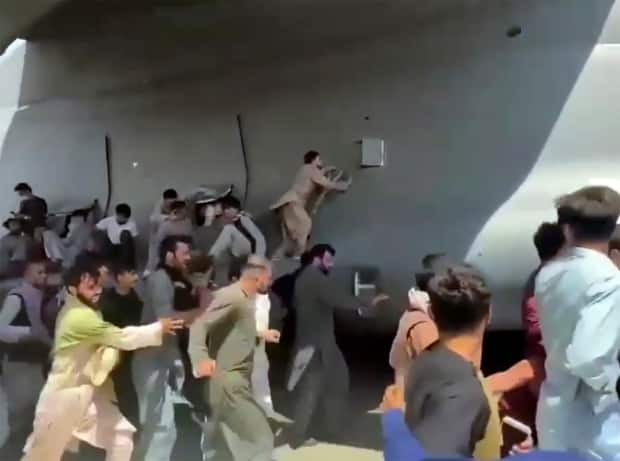
Her eldest hopes to be an astronaut, her youngest a scientist. Now they're out of school as they wait.
While Ottawa says it's doing all it can to quickly process Afghan refugees, advocates say many — including those who worked for the Canadian government — find themselves stuck in third countries, mired in a web of bureaucracy.
This family's struggle offers a snapshot of that reality.
The mother is happy her family is now safe. She's thankful for Ottawa's help and still holds onto hope that they will soon be in Canada. But the indefinite wait, with little information, has taken a heavy toll.
"There's been this kind of good policy intent but there's been a tremendous amount of confusion about what exactly is happening," said Janet Dench, executive director of the Canadian Council for Refugees.
"People … are feeling very frustrated with the Canadian government because they felt like there were undertakings to help them — and it hasn't come through."
Hope dashed
As the Taliban began its lightning advance toward Kabul this past summer, this mother, who holds a masters degree in international relations, knew her family would need to flee Afghanistan.
A long time advocate of women in sport and civil society, she feared her family would become a target — a concern amplified by her long-time work on Canadian government peace-building projects through the embassy in Kabul. She also spent time working for a Canadian NGO.
"Our main concern was security-wise," she said. "We were afraid the Taliban would attack our home because we have worked with NGOs and with foreigners for many years."
In late July, she received an email from the Canadian embassy in Islamabad, inviting her to apply for the newly announced special immigration program for Afghans who were "integral to Canada's efforts" in Afghanistan.
She submitted the required documents for her family within the three-day deadline. She says her children, husband and herself then went to the Canadian embassy in Kabul to submit the biometrics the Canadian government requires.
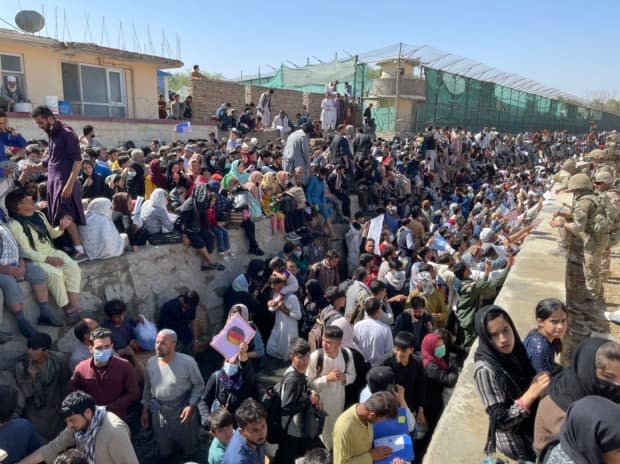
Weeks later — after Kabul fell to the Taliban on Aug. 15 — she and her family received letters from the Canadian government asking the country's new rulers to allow their safe passage into Kabul's airport for a flight out of the country.
But by then, the airport had become a dangerous flashpoint. Thousands of frightened Afghans crowded around its gates every day, desperate to escape.
With their letters in hand, she and her family — her four children, ranging from 11- to 17-years-old, and husband — tried to enter the airport six times, she says, even sleeping outside the gates for two nights.
But amidst the crowds and chaos, they were never able to get through.
"It was really difficult for us to cross the Taliban checkpoints," she said. "All of us would take each other's hands to not lose each other.
"It was so difficult."

'We do not have any arrangements for you'
Stuck in Kabul, a city where they feared for their lives, the family rarely went outside as they pleaded with Canadian officials for help.
On Oct. 2 — about six weeks after they applied — the family received an email from Immigration, Refugees and Citizenship Canada (IRCC) informing them that their application under the special immigration measures had been approved.
CBC News has reviewed that email and the others described throughout this article.
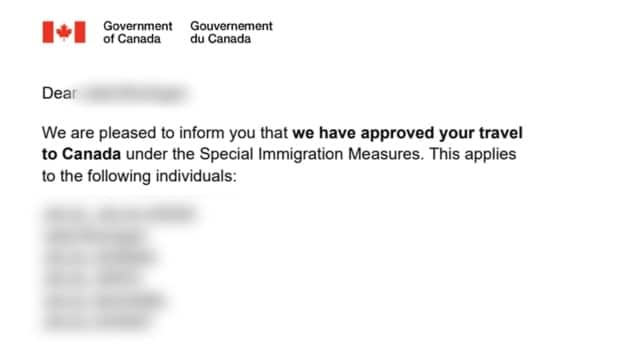
It said they would need additional travel documents but only offered vague information on how to proceed, with no help for leaving the country.
Finally, in mid-October, the family was evacuated on a Qatar Airways flight with dozens of others. CBC News is withholding specifics of their escape at the request of those involved.
Hoping they would quickly be en route to Canada, she contacted Canadian officials several times to tell them the family had made it to Doha, the Qatari capital. But the initial responses did not provide any guidance on next steps.
"I keep thinking, 'What would happen if they ignore us?'" she said. "If they suddenly didn't accept us — then what would we do?"
It wasn't until weeks later, she says, that she was told the Doha embassy would not be able to help her family get their temporary resident visas required to enter Canada or arrange their onward travel.
That realization came after she learned the organization that helped facilitate her family's evacuation was planning to move the group of evacuees to Albania. The country has agreed to house up to 4,000 Afghan refugees.
She appealed again to Canadian authorities but in an email response from the embassy in the United Arab Emirates, she was informed, "We do not have any arrangements for you to be resettled to Canada from Qatar."
Instead, the email advised her family to travel with the rest of the group to Albania. From there, she was told she would have to contact the IRCC office in Rome.
She had already dealt with Canadian officials in Kabul, Ottawa and Abu Dhabi.
"I don't blame IRCC because they have a lot of cases," she said. "But a lot of pressure is on our minds. We wake up and go to sleep without any plan."
WATCH | Afghan refugees eager to start their new lives in Canada as they wait for immigration documents:
Trudeau government urged to do more
In an email to CBC News, Alexander Cohen, press secretary for Immigration Minister Sean Fraser, said — despite what happened to this family — cases are being processed in Doha. The embassy, he wrote, is issuing visa documents and assisting with onward travel to Canada.
Given his assertions, it's unclear why this family — which had already received approval under the special immigration measures program — was told their case couldn't be handled in Qatar.
"I feel weak," said the mother after learning other cases have been processed in Doha but not her family's. "I feel hopeless, and incapable of doing anything."
CBC News detailed aspects of the family's case to Cohen but he said he could not comment on specifics, citing privacy concerns.
"While normally we don't officially do IRCC processing in Qatar, we have improvised and assisted many of the Afghan refugees who've ended up there, and ultimately helped them make it to Canada," Cohen wrote.
Cohen added that staffing has been increased at key embassies around the world as the government works to fulfil its pledge to welcome 40,000 Afghan refugees.
The government has described the resettlement effort as unprecedented.
Still, in an open letter to the Trudeau government published this month, the World Refugee and Migration Council acknowledged the government's efforts but urged it to find ways to process refugees faster.
Toronto immigration lawyer, Nilofar Ahmadi, who is representing Afghan refugees stuck around the world, says the government is struggling to adapt.
Like this family, many of Ahmadi's clients are facing difficult bureaucratic hurdles as they try to make their way to Canada.
"I wish we were well-prepared," she said. "The government of Canada is learning through this crisis right now, unfortunately."
'How can we again manage to live our normal life?'
The family is now living in a stark apartment complex with other Afghans in northwest Albania.
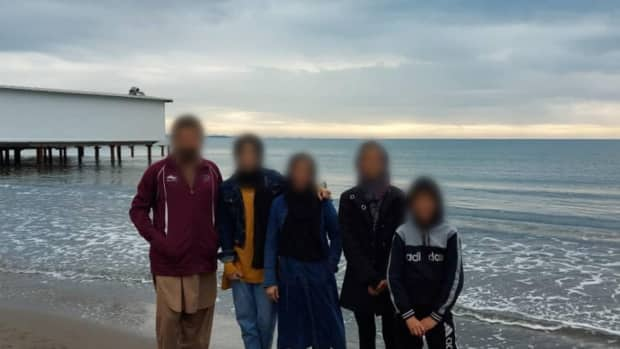
The conditions are less hospitable than in Doha. The family is divided into two rooms on two separate floors. There weren't enough beds for everyone when they arrived and there's no internet connection in their rooms.
Upon arrival, the mother updated IRCC on the family's new location. She says she has yet to receive a response.
"Everything is new here for us," She said. "I feel we are starting yet again from scratch."
Her children ask her constantly when they'll finally be able to call Canada home — as she worries constantly about their future.
"I'm always thinking about my children because they are not living their normal life now," she said.
"How can we again manage to live our normal life?"

